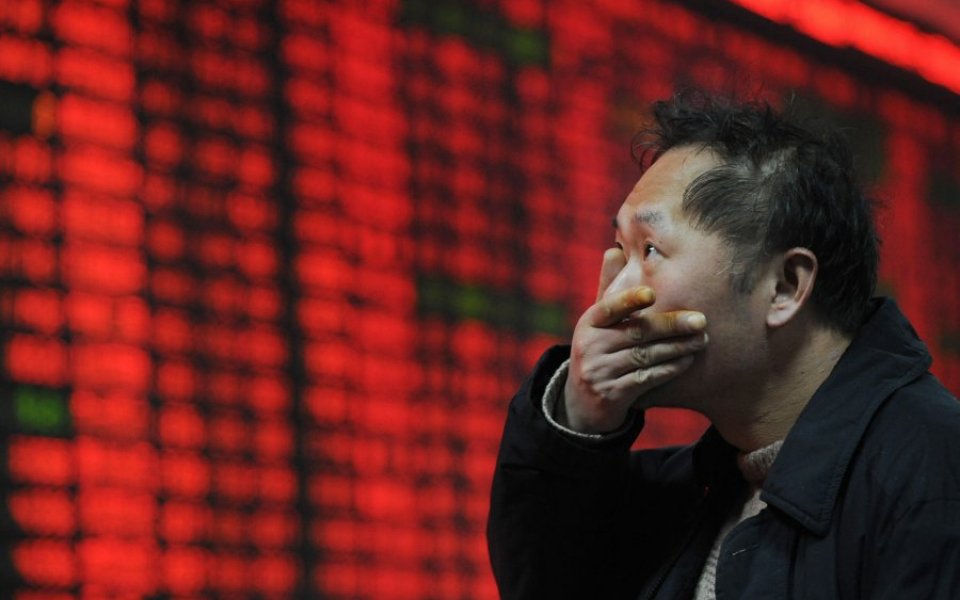These were some of the worst investments of 2015

From a slowdown in the Chinese economy to the Greek debt crisis, a number of events burnt the hands of even the shrewdest investors this year. Here’s a round-up of some of the worst.
Mounting fears China’s economy is slowing at a greater pace than previously thought gave investors a bumpy ride in 2015. China’s benchmark Shanghai composite index fell around 43 per cent from a high of 5166.35 points in June to just 2927.29 in August.
The world’s second largest economy is trying to move away from export-led growth towards more sustainable domestic, consumption-led growth. But a number of events heightened concerns that it’s actually approaching a hard landing, when an economy which has previously enjoyed rapid growth slows sharply.
It reached a fever-pitch on so-called “Black Monday” in August when panic on China’s trading floors ripped through global markets. The market capitalisation of listed firms in the US, Europe, Japan and beyond crashed by $1.3 trillion according to the S&P Global 1200 index, while shares in China fell by nearly $300bn.
Read more: Market economy status for China is a disaster for Europe
But China’s troubles also hit anyone who invested in raw materials such as iron ore or copper, of which it is the world’s biggest consumer.
Iron ore prices are heading for their third consecutive annual decline, and hit a fresh 10-year low earlier this week. It’s been whipsawed by a supply glut which has flooded the market at a time when it’is suffering from low demand.
While low prices would normally lead miners to cut production, the biggest mining companies have been using their economies of scale to boost production and protect their market share.
Copper prices have suffered a similar fate, falling to the lowest level in years in November.
Miner and trader Glencore, which has a large exposure to copper, has been one of the biggest corporate casualties of the commodities crunch. Its shares have lost around 73 per cent since the start of this year.
The FTSE 100-listed company shocked market participants in September when its shares shed around 30 per cent in a single day.
The sell-off came after broker Investec put out a note questioning how much the company's shares would be worth if metal prices don't improve, while pointing to high debt levels and a need for restructuring.
Another bad call was oil producer Afren which became the first corporate victim of the oil price rout when it collapsed into Administration in July. Its woes had been compounded by high level board room drama at the end of last year, as well as poor results from exploration drilling in Kurdish Iraq.
The company’s shares were trading at 7.2p per share at the start of this year. By the time the company delisted from the London Stock Exchange in August, its shares had lost 99 per cent of their value, to trade at just 0.07p.
Read more: Greece’s humiliation has exposed the lie at the heart of the European Union
Afren's sorry plight came to light in January, when the Nigerian oil producer revealed it was in the grips of a funding crisis. This was followed by months of toing and froing over the restructuring of its debts, as well as the odd rumour it was about to be thrown a lifeline by a potential suitor.
Investors who took a punt on Greek asset classes would've been disappointed by their returns this year, thanks to the impact of political turmoil brought about by Syriza's explosion onto the political scene in January, with the Athens Stock Exchange has shed around 30 per cent so far this year.
Greek bank shares felt the pain as investors fretted over how a €14.4bn shortfall identified by the European Central Bank would be plugged, as well as the spectre of bad loans which could go unpaid because Greeks were either unwilling or unable.
The country's four main banks – National Bank of Greece, Piraeus, Alpha Bank and Eurobank – shed 91.3 per cent, 49.4 per cent, 85.7 per cent and 95.1 per cent respectively.